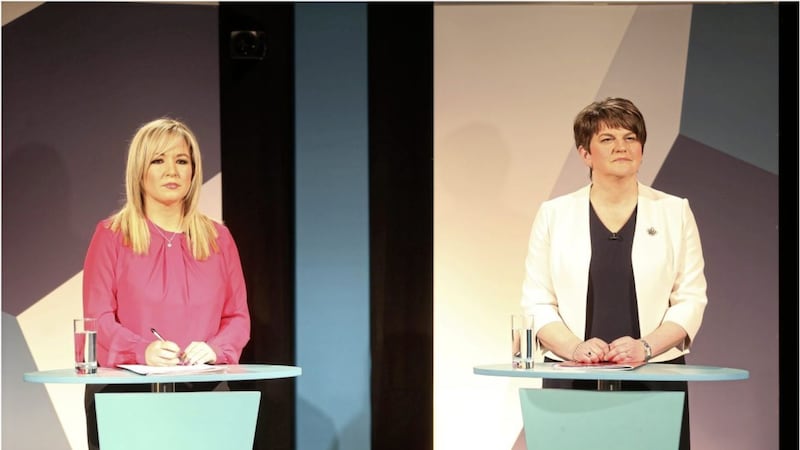In a week from now the people of Northern Ireland will take to the polls for the second time in less than eight months.
It's understandable that many voters are weary and disillusioned, given the damaged condition the last Stormont administration ended in, tarnished as it was with allegations of corruption and incompetence.
The new start and new politics we were promised by both the DUP and Sinn Féin was short lived.
The failure to fully initially grasp the level of public anger at the Renewable Heat Incentive debacle, was in part to blame for the assembly's collapse.
While previous financial scandals such as the Nama property allegations raised eyebrows, RHI has really resonated with the public.
The image of shed doors being left open to burn heaters around the clock for no other purpose than to earn money certainly hit home.
This was a scheme so badly designed that even now, thanks to a persistent media, we know what a mess it is, yet nothing has been done to stop the waste.
Had Arlene Foster stepped aside in December and had a public inquiry been called at the start of this controversy instead of after the wheels had already fallen off, would we be in a different place now?
My instinct tells me that proper order, apologies and appropriate investigations would have stalled the collapse, but in reality it would have been a plaster over a very large and increasingly infected wound.
While the RHI scandal was the catalyst for the collapse of power sharing it wasn't the sole cause.
Elections encourage politicians to exaggerate their views for maximum impact, but even factoring that in the last few weeks have demonstrated perfectly why the coalition was always a marriage on the rocks.
Arlene Foster's recent comments regarding equality and the Irish language suggest unionism's war with republicanism is far from over.
There are coalition governments in power all over the world working together with varied results.
How all those governments differ from what we had at Stormont is that nowhere in the world do two parties sit in government without agreeing on whether the place they are ruling is even a country.
The DUP and Sinn Féin disagree on far too many policies, from austerity to social issues and how to deal with the legacy of the Troubles, Brexit, the border, the list is endless.
The ten years of stop start devolution we did have differed in that the smaller parties had a role in the executive.
Once those parties went into opposition, the DUP and Sinn Féin, like an unhappy couple who stayed together for the sake of the children, seemed to realise their differences were just too great.
Regardless of how next Thursday's vote goes a lengthy period of 'marriage guidance counselling' in the form of intensive talks will be needed before there is any prospect of restoring a coalition partnership.
Sinn Féin's election slogan of 'there can be no return to the status quo,' pretty much echoes the feelings of the electorate.
The only way change is going to happen and the only way stability can be restored is by actual compromise, rather than begrudging, barely concealed, contempt.
Politicians are the employees of the electorate and as such you the voter have the power, and in a smaller assembly with five seat constituencies your vote, including second and third preferences, really will count.
We're in the mouth of Brexit, a financial and political unknown and with no working assembly the situation is pretty dire.
Same sex couples are still being denied the right to marry afforded to citizens of both Britain and southern Ireland.
Women are denied autonomy over their own bodies, victims of both the Troubles and state and church child abuse, promised so much but as yet granted so little.
And that's before you even consider the attack on the weak and vulnerable in the form of welfare cuts, NHS reform and education.
And so next Thursday I won't advise you who to vote for but I will ask you to please vote.
Use your power to elect the people who best represent your views, who are most likely to push for the kind of place you want to live in and who are prepared to work for you.
People are understandably disillusioned but if you don't vote you forfeit your right to complain later.
You have a chance and a choice. Make it count.








